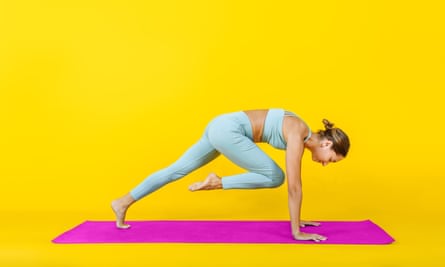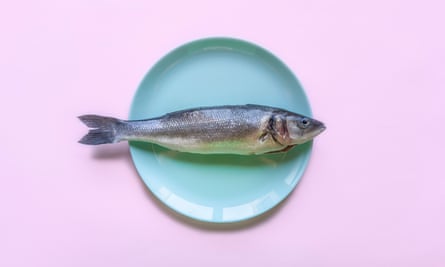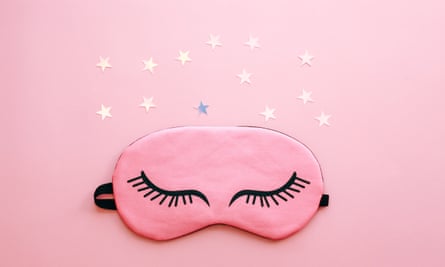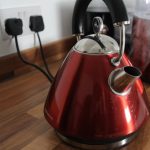1
Save money
Move your fridge
Keep it away from heat sources, such as ovens, and try to keep it out of direct sunlight. Shift it forward so it’s not pressed against the wall, as this allows air to circulate more easily, so the fridge uses less energy. Cleaning behind it also helps. Meanwhile, a well-stocked fridge is cheaper to run than an empty one. Uswitch recommends putting bowls of water in there to keep it full between shopping trips.
2
Switch off
Switching off and unplugging gadgets and chargers that you are not using can save money. It might only cost a few pence to leave a TV on standby for eight hours, but across lots of devices over time, that will add up. Some games consoles can be particularly power-hungry on standby.
3
Check your tax code
If you are earning and on PAYE, check that your tax code is correct – you could be paying too much. If yours is wrong, you may be due a refund of hundreds or even thousands of pounds. The code will be on your payslip, and HM Revenue & Customs will often send letters containing it. If you have standard earnings from one employer and do not get taxable benefits or pay the child benefit charge, your code is likely to be 1257L. To get an idea of whether you are on the right tax code, try Moneysavingexpert.com’s online tax code calculator.
4
… and your benefits
Check you are getting all the financial support you are entitled to by using a free online benefits calculator, such as those provided by the charity Turn2us and the website entitledto.co.uk. For example, more than a million eligible households are not claiming pension credit, which means they may also be missing out on the other help that this unlocks, such as a council tax discount and (for over-75s) a free TV licence.
5
Switch and haggle
Look at your phone, TV and broadband contracts and use comparison sites to see if you are paying over the odds. Remember that you might have to pay an exit fee if you want to switch mid-contract. If you are at the end of your contract, call your provider to haggle for a cheaper deal.
6
Scrap best-before dates
Check out websites such as Approved Food and Low Price Foods, which sell products that are past their best-before dates. Apps such as Olio and Too Good To Go allow users to pick up free or discounted food that would otherwise go to waste from cafes and restaurants.
7
Ditch your electric cooker
Swapping cooking appliances can reduce your energy bills, according to the latest research by supplier Utilita. It found that ditching an electric cooker in favour of an air fryer and a slow cooker can help families save money.
Jess Clark
 View image in fullscreen Photograph: Alexandr Dubynin/Getty Images8
View image in fullscreen Photograph: Alexandr Dubynin/Getty Images8
Improve your fitness
Take up yoga
Yogis have long extolled the mood-lifting, as well as physical, virtues of the downward dog. Proper science is less conclusive, however, broadly showing that yoga is better than nothing but not necessarily any more beneficial to mental health than any other form of exercise. But – and it’s a big but – the fact that yoga fans feel as if it lifts their mood (which may be partly down to the act of going to and joining a group of like-minded souls) is a powerful drug in itself.
9
Pump iron
Research published last year added heft to theories about weight training easing depression and anxiety. When scientists at the University of Limerick in Ireland put one half of a group of happy young people on an eight-week weights course (the rest carried on as normal), they scored 20% better in anxiety tests. Rapid improvement may be part of the reason: a sense of growing mastery is known to lift the mood. It’s also thought that molecular changes in the muscles and brain may help.
10
Ride a bike
Neurologists and cyclists have long wondered at the way riding a bike can induce what feels close to a meditative state. In repetitive aerobic sports (see also swimming and running), rhythm itself has been shown to have a powerful regulatory effect on the brain, even as a treatment for people with some medical conditions. The American Pedalling for Parkinson’s project, run by a neuroscientist at the Cleveland Clinic Lerner Research Institute in Ohio, founds that symptoms improved by as much as 35% in patients who did regular training on indoor bikes.
11
Walk in the woods
In 2019, the Woodland Trust suggested that the Japanese art of “forest bathing” (hanging out among trees) should be recommended by GPs to improve wellbeing. Reasons include the biophilia hypothesis (an evolutionary drive to connect with nature); a nature-induced lowering of stress hormones; and the “attention restoration” theory, which holds that even proximity to trees resets the brain in a way that improves concentration and focus.
12
Swim in cold water
It’s easy to tire of wild swimmers who wang on about the joys of an al fresco dip, but theirs is an evangelism with scientific backing. The mammalian diving response kicks in when cold water hits our face, maximising blood delivery to the heart and brain. Add to that studies that have shown that frigid immersion can boost dopamine levels by 250%, according to one Czech study, while also reducing stress hormones, and it’s clear that something is going on. The good news is that even a cold splash to the face can trigger the diving response, reducing the need to tolerate actual freezing, possibly polluted water, if that’s not your bag.
Simon Usborne
 View image in fullscreen Illustration: Lisa Sheehan/the Guardian13
View image in fullscreen Illustration: Lisa Sheehan/the Guardian13
Make a home cosy
Deal with draughts
Double or secondary glazing is a must, but you should also check your gutters, suggests chartered building surveyor Marianne Suhr, author of Old House Eco Handbook. “Heat is lost more quickly through a damp wall than a dry one, so stand outside your home on a rainy day and check that water is discharging properly from gutters and downpipes, and not running down the walls. Clear your gutters and gullies of leaves and blockages.”
Suhr also urges homeowners to sort out draughty hallways. “Check whether the draught sealing around your front door needs replacing and, if the wind is whistling through the keyhole, add a keyhole cover.” For a range of energy-saving products, try lowenergysupermarket.com. A thick floor-to-ceiling curtain over the front door will also prevent heat loss (try eBay).
If you have an open fire, block it up, says Paul Testa, director of HEM Architects and retrofitting expert for the London Homebuilding & Renovating Show. “You may be thinking about lighting a fire this winter to cut down on bills, but an open fire is horrendously inefficient and won’t get close to making your home comfortable,” he says. “It also gives terrible air quality, both inside and outside your home.” The solution is a chimney balloon: “This will significantly reduce heat loss through your chimney.”
14
Stock up your cupboards
In many things home-related, the Danes are the experts. Meik Wiking, CEO of the Happiness Research Institute in Copenhagen, suggests several ways to create a feelgood factor at home.
First, start pickling and preserving – preferably from food you’ve foraged for yourself – and create a well-stocked cupboard to see you through winter. “It gives you comfort and hygge several times: when you grow or forage it, when you cook and store it, and when you eat it,” he writes in his latest book. “It also means understanding the ebb and flow of seasonality in nature … Strawberries in the supermarket in midwinter are neither tasty nor hygge.” Try salted lemons, pickled beetroot, cherry sauce and figs in rum (Kylee Newton’s The Modern Preserver is good for those new to pickling).
15
Eat together
Wiking writes: “A range of studies has shown that family meals are associated with higher average grades for teenagers, a stronger sense of belonging, better communication skills, less obesity and fewer depressive symptoms.” He suggests prolonging dinner time by serving meals that require time-consuming, communal assembling, such as Vietnamese spring rolls and Swiss-style fondue.
16
Keep on top of your freezer
Wiking keeps his fridge-freezer in order by having a “retirement shelf”. “This is where you place the food that needs to be eaten soon … This makes it easier for you to be aware of what you have to work into your meals that day or the next.” He also keeps an up-to-date list of the contents of his freezer on his phone. Just make sure you label your leftovers clearly. One pot of brown sauce-based food looks much like another.
Nell Card
My Hygge Home by Meik Wiking is published by Penguin Life, £16.99
 View image in fullscreen Photograph: Javier Zayas/Getty Images17
View image in fullscreen Photograph: Javier Zayas/Getty Images17
Food
Improve your diet – long term
The internet is littered with lists of supposedly mood-enhancing foods – strawberries, kiwis, pineapple, ginger, oranges, chocolate – but none of them actually works, says psychologist Kimberley Wilson, who explores the connection between diet and mental health in her book How To Build a Healthy Brain. (Chillies do cause an endorphin release, but sadly not enough to “make a measurable, clinical improvement,” she says.)
But what you eat can affect how you feel and, for Wilson, the best way to cheer up is to eat healthily. “We know that women who eat two portions of fruit a day have less depression than women who don’t,” she says. A single banana won’t do the trick but, over several months, more fruit (tinned, dried or frozen) could help. It’s not about what we eat in a single meal, or even a day, but what our diet looks like in the round. “Improving our diet can help treat even severe clinical depression,” adds Felice Jacka, co-director of the International Society for Nutritional Psychiatry Research.
18
Find your food joy
One of the surest ways to boost your mood with food is to eat the food you love, ideally with people you love, too. “Instead of thinking about a food as good and bad, think about what that food can offer, like vitamins and fibre from broccoli, and the energy, taste and satiation from chocolate, removing the morality,” says dietitian Aisling Piggott. Food’s impact on our mood is more than just physical – it is associative, too: I connect milk chocolate with coming home from school and stealing it from the lunchbox drawer; today I soothe myself with it whenever I’m tired or sad (that is: often). Different foods give us different kinds of joy because they’re meeting different needs.
19
Get the vitamins right
Although no single food can make us happier, certain nutrients are important for mental balance, especially omega-3 fatty acids, which the vast majority of us are lacking in and which have been found to make clinical improvements in mood. (Omega-3 is most easily found in oily fish such as mackerel, sardines, salmon and trout; vegetarian sources include pumpkin seeds, hemp seeds, flax seeds and flax oil, and nuts.)
Vitamin D is also a key nutrient – although the exact way it works in the human body isn’t yet clear – but in our gloomy British winters it can be hard to get enough of it without supplementing. (Food sources include oily fish, liver, red meat, eggs and fortified foods.)
skip past newsletter promotion
Sign up to Inside Saturday
Free weekly newsletter
The only way to get a look behind the scenes of the Saturday magazine. Sign up to get the inside story from our top writers as well as all the must-read articles and columns, delivered to your inbox every weekend.
Enter your email address Enter your email address Sign upPrivacy Notice: Newsletters may contain info about charities, online ads, and content funded by outside parties. For more information see our Privacy Policy. We use Google reCaptcha to protect our website and the Google Privacy Policy and Terms of Service apply.
after newsletter promotion
And don’t forget the B vitamins. “B deficiencies show up as irritability, depression, low mood and cognitive problems including forgetfulness. Supplements are quite cheap to buy and there is no risk of toxicity – you just pee out any excess,” says Wilson. Food sources of B vitamins in general include meat, eggs, dairy and fortified foods, and specific B vitamins can be found in peas, nuts, wholegrains, mushrooms, bananas, oats and green leafy vegetables.
The B vitamins tend to get to work quite quickly, but other dietary improvements or supplements will take a while to have an effect – up to three months in the case of vitamin D, for instance. So eating some smoked mackerel today won’t have a noticeable impact on how you feel. However, if you eat oily fish once every week from now until February you may well notice a difference in your mood, cognition or quality of sleep.
Rebecca Seal
 View image in fullscreen Photograph: Anna Blazhuk/Getty Images20
View image in fullscreen Photograph: Anna Blazhuk/Getty Images20
Mind
Go to sleep
Of course sleep is often elusive if you are anxious but try not to stress about it and remember that even lying down relaxing is better than nothing. Also, we’re not built for an unbroken night’s sleep but bi-phasal sleep so don’t beat yourself up about waking up. But, to help you relax, try imagining worries floating away in balloons. Just the focus can take you from level-10 overwhelm to eight. It’s a start. If you find yourself being really sleepy don’t fight it. Emotional load is as exhausting as physical load.
21
Recognise what’s going on
Feeling anxious and overwhelmed – both understandable right now – go hand in hand. And irritation is often the “wrapper” to anxiety. So if you find yourself becoming short-tempered, it is worth pondering where its roots are. This can take time because we tend to bury the true source of our emotions if we’re afraid they might lead to discomfort. But once we’ve found the source – a bit like with a leak – we can often deal with it more efficiently. You know you’ve got to it because you will either have an “a-ha” moment, start to cry or get defensive: all are signs you’ve hit on the right spot.
22
Shorten your focus
Years ago someone taught me that, just like driving on a dark road, where you know there’s a long road ahead but you can only concentrate as far as the headlights let you, sometimes looking too far ahead isn’t helpful, or possible. Ask yourself, “What do I really need to do right now/ in the next hour?” Most of what we put on our to-do lists doesn’t have to be done today. Prioritise what really needs to be done then pick up the rest when you feel more robust.
23
Drop the ‘shoulds’
If you find yourself saying “I should” a lot, try to change it to “I want to” or “I could”. “Should” usually comes from expectations other people have put on us. Changing it to “I could” or “I want to” focuses on what you want and often anxiety and being overwhelmed result from trying to do too much for others and not looking after ourselves. So, instead of “I should put the washing on”, think “I want to watch a film or speak to a friend”, or even, “I could do the washing, but tomorrow”.
24
Talk to someone who will help you offload
Sometimes when we say things out loud, different things from those that are whirring around in our head come up. Ask your friend what they hear from you. They may say, for example, that they are hearing a lot of ‘shoulds’, so this is your cue to do as above. Sometimes having an audience also makes you face things you’ve been avoiding. If a face to face talk is too daunting, you can try taking a walk, where you’re side by side and silences aren’t too daunting. I sometimes approach friends first via text, saying, “I really need to talk something through”, so you know that when they call they’re ready.
25
Make a move
If you’re in a really difficult moment and can’t talk it out with a friend, take really deep breaths to tell your nervous system you are not under threat. You can also put a hand on your heart and reassure yourself you are okay. Child’s pose in yoga is a great calming pose but so is curling into the foetus position. There’s a reason we do this when we need to comfort ourselves.
Annalisa Barbieri
26
Beauty
Up the moisture in the air
While skincare may not seem a priority during a heating and energy crisis, it is also true that dry skins in particular can suffer real discomfort, even pain, in a cold snap. Moisture levels drop when exposed to harsh winds, then worsen in the hokey-cokey in-out, from central heating to outside and back again. I am particularly prone to the drying, itchy effects of this, and find it helpful to put small bowls of warm water on top of radiators to make the air less dry: it’s free, easy and doesn’t take up space as a humidifier would.
27
Look for skincare with key ingredients
Certain affordable, accessible skincare ingredients help skin cling on to any ambient moisture – look out for humectants such as hyaluronic acid and glycerin, which are present in very many serums and moisturisers, including affordable ones by Simple, Aldi, Byoma and Superdrug. Ceramides are also terrific for giving cushiony moisture to the face and body, while helping restore the skin’s natural barrier function, which can take a bashing in cold weather. Ceramides are especially efficacious for a sore nose during and following a cold. CeraVe (available widely) is an entire – and extremely good – skincare range, with ceramides in almost every formula.
28
Don’t forget about your hair
It’s worth giving your hair some extra love, too. Regular conditioning hair packs (richer than your regular conditioner) are a must if your hair is frizzing, splitting or beginning to feel straw-like in the chill. I’m a big fan of those by Dove, Shea Moisture and Aussie, all of which leave hair softer and smoother and are affordable when used the suggested once a week.
29
Indulge in a face mask
Finally, face masks aren’t a must, but I would be lying if I said there wasn’t joy to be had in slathering on a rich, creamy face pack (I love AHC face masks for the winter) and wallowing in front of an episode of Bake Off. This is way more cheering than braving the elements and actually going outside.
Sali Hughes
 View image in fullscreen Illustration: Lisa Sheehan/The Guardian30
View image in fullscreen Illustration: Lisa Sheehan/The Guardian30
Comfort culture
Bournville by Jonathan Coe
Viking, £20, out 3 November
This novel offers tender, warm and gently comedic reading for the end of a tumultuous year: the changes and continuity of postwar Britain are told through four generations of one family at key national moments, from the Queen’s coronation and the 1966 World Cup victory to the death of Diana, Brexit and the Covid pandemic.
31
The Skeleton Key by Erin Kelly
Hodder & Stoughton, £16.99
When frenemy artists publish a beautiful book containing clues for a treasure hunt, it brings their intertwined families fame – and misfortune. This is a deliciously involving page turner about art, ambition, toxic families and the perils of success, with meaty characters and long-kept secrets galore.
32
The Light We Carry by Michelle Obama
Penguin, £25, out 15 November
If you’re after something uplifting and empowering, the former first lady’s follow-up to Becoming could be just the thing. She describes it as “a kind of toolbox … a collection of some of the perspectives and practices I have gathered over the years to help keep me centred”.
33
Hollywood: The Oral History by Jeanine Basinger and Sam Wasson
out 8 November
At around 750 pages, this is surely the most comprehensive portrait of America’s dream factory ever committed to paper, including conversations with everyone from Bette Davis to Jordan Peele. Thankfully, it’s easy to dip in and out of, and tales of sunny LA should keep you going through the long winter nights.
34
The Loneliest Time by Carly Rae Jepsen
Out 21 October
The title of the Canadian singer-songwriter’s new album doesn’t exactly scream “fun”, but Jepsen (of Call Me Maybe fame) is one of the finest practitioners of giddy, sugar-rush pop. The opening trio of singles – breezy Western Wind, catchy, sardonic Beach House and the hi-NRG dance-pop of Talking to Yourself – suggest that she’s lost none of her exuberance.
35
Glass Onion: A Knives Out Mystery
In cinemas November; Netflix 23 December
Three years after Daniel Craig swapped 007 for a dapper detective with a daft deep-south accent, he returns for this sequel to the hit murder mystery of 2019. This time Benoit Blanc is investigating a suspicious death on a tech billionaire’s private island. Expect a stacked cast (Edward Norton, Janelle Monae, Ethan Hawke and many others), fiendishly clever plotting and some big laughs.
36
Abbott Elementary
Out now, Disney+
For the next Parks and Recreation, look no further than this US sitcom, winner of two Emmy awards. Set in a majority Black school in Philadelphia that is cheerfully battling on despite terminal funding cuts, it combines sharp social commentary with dynamite one-liners from a charming cast. Season one is available now; season two arrives later this winter.
37
NT Live in cinemas
For 12 years, this initiative from the National Theatre has brought A-grade stage performances to cinemas across the country. You can still catch Prima Facie, starring Jodie Comer, for another seven days, and a Katherine Parkinson-starring update of Much Ado About Nothing until 17 November, while a new version of Checkov’s The Seagull, starring Daenerys Targaryen herself, Emilia Clarke, arrives at cinemas from 3 November.
Gwilym Mumford, David Shariatmadari and Justine Jordan
This article was amended on 10 October 2022 to correct a statistic in the cold water swimming entry: according to the Czech study, dopamine levels can be boosted by 250%, not 530% as originally stated.






Leave a Reply
You must be logged in to post a comment.